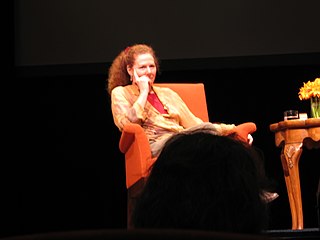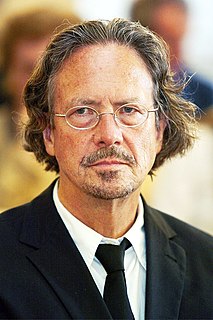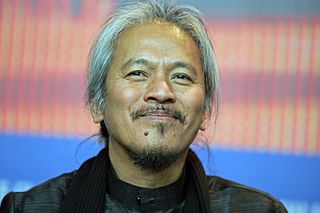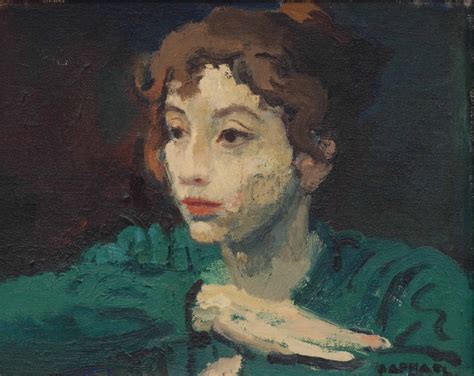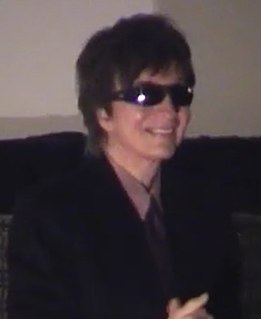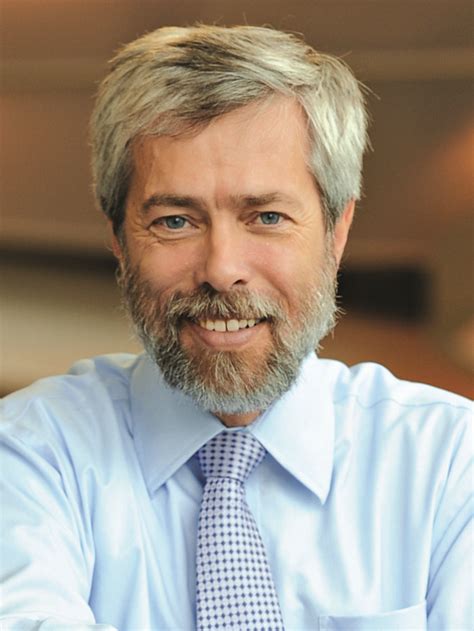Top 184 Lev Tolstoy Quotes & Sayings - Page 3
Explore popular Lev Tolstoy quotes.
Last updated on April 20, 2025.
But this thing, whatever it was, this mistlike something, hung there inside my body like a certain kind of potential. I wanted to give it a name, but the word refused to come to mind. I’m terrible at finding the right words for things. I’m sure Tolstoy would have been able to come up with exactly the right word
The slight, the facile and the merely self-glorifying tend to drop away over the centuries, and what we are left with is the bedrock: Homer and Milton, the Greek tragedian and Shakespeare, Chaucer and Cervantes and Swift, Dostoyevsky and Tolstoy and James and Conrad. Time does not make their voices fainter, on the contrary, it reinforces our sense of their truth-telling capacity.
Tolstoy didn't know about steampunk or cyborgs, but he did know about the nightmarishness of steam power, unruly machines, and the creepy half-human status of the Russian peasant classes. In 'Anna Karenina,' nineteenth-century life itself is a relentless, relentlessly modern machine, flattening those who oppose it.
Excellent teachers showered on to us like meteors: Biology teachers holding up human brains, English teachers inspiring us with a personal ideological fierceness about Tolstoy and Plato, Art teachers leading us through the slums of Boston, then back to the easel to hurl public school gouache with social awareness and fury.
The ideal woman which is in every man's mind is evoked by a word or phrase or the shape of her wrist, her hand. The most beautiful description of a woman is by understatement. Remember, all Tolstoy ever said to describe Anna Karenina was that she was beautiful and could see in the dark like a cat. Every man has a different idea of what's beautiful, and it's best to take the gesture, the shadow of the branch, and let the mind create the tree.
I don't think we should just 'muddle through' and ignore the question of life's meaning. Or better, perhaps, I don't think it is a question that can be ignored once the business of asking about the worth and significance of what one is doing - one's work, one's pleasures, one's ambitions and so on - has got going. You can't at any point stop the urge to ask Tolstoy's questions, '... and then what?', 'What's the point of that?'.
Leo Tolstoy, the greatest anti-patriot of our time, defines patriotism as the principle that will justify the training of wholesale murderers; a trade that requires better equipment in the exercise of man-killing than the making of such necessities as shoes, clothing, and houses; a trade that guarantees better returns and greater glory than that of the honest workingman.
Einstein's space is no closer to reality than Van Gogh's sky . The glory of science is not in a truth more absolute than the truth of Bach or Tolstoy, but in the act of creation itself. The scientist's discoveries impose his own order on chaos, as the composer or painter imposes his; an order that always refers to limited aspects of reality, and is based on the observer's frame of reference, which differs from period to period as a Rembrant nude differs from a nude by Manet.
Historical fiction was not - and is not - meant to supplant literature from the period it describes. As a veteran of the Crimea, Tolstoy wrote 'War and Peace' to match his own internal sense of the truth of the Napoleonic wars, to dramatize what he felt literature from that period had failed to describe.
I'm a reader. I like - I'm a great reader. I keep going back, though, to certain authors, just like I love film, but I keep going back to just five or six certain filmmakers. In literature I like Chekhov, for example; I think he's my favorite. And Flaubert - you know, that kind of concision. But I also like Tolstoy; I love those romances that, you know, weigh 500 pounds and take months and months and months to read.
If you really think back to the great writers, there's a lot of happiness in Tolstoy; there's a lot of love, there's childbirth, and there's dances. And likewise in Shakespeare and even Cervantes, there's a lot of celebrations of the positive manifestations of life. Technically, I found it harder to do, so that's kind of a good late-life challenge - without getting sentimental or chirpy.
When I am teaching, I first give out Tolstoy's 'Childhood,' his first published book. It is so transparent. It gives you exactly what it was like to be on a Russian estate in 1830. You are there. And that is the hope when you sit down and write still, I think - that you can transmit something of what life is like now.
One of the things that really impressed me about Anna Karenina when I first read it was how Tolstoy sets you up to expect certain things to happen - and they don't. Everything is set up for you to think Anna is going to die in childbirth. She dreams it's going to happen, the doctor, Vronsky and Karenin think it's going to happen, and it's what should happen to an adulteress by the rules of a nineteenth-century novel. But then it doesn't happen. It's so fascinating to be left in that space, in a kind of free fall, where you have no idea what's going to happen.
Where nothing in a person's earlier years lends itself to an old age devoted to continuing intellectual and physical pursuits, a late-life interest in Tolstoy or even crossword puzzles is unlikely to appear, no matter the urging by well-intentioned social workers or people like me who write books about it.
Listen, in dreams and especially in nightmares, from indigestion or anything, a man sees sometimes such artistic visions, such complex and real actuality, such events, even a whole world of events, woven into such a plot, with such unexpected details from the most exalted matters to the last button on a cuff, as I swear Leo Tolstoy has never invented.
Everything Tolstoy wrote is precious, but I found this final statement of the truth about life as he had come to understand it particularly beautiful and moving. 'That is what I have wanted to say to you, my brothers. Before I died.' So he concludes, giving one a vivid sense of the old man, pen in hand and bent over the paper, his forehead wrinkled into a look of puzzlement very characteristic of him, as though he were perpetually wondering how others could fail to see what was to him so clear - that the law of love explained all mysteries and invalidated all other laws.
Woman, I hold, is the personification of self-sacrifice, but unfortunately today she does not realize what a tremendous advantage she has over man. As Tolstoy used to say, they are laboring under the hypnotic influence of man. If they would realize the strength of non-violence they would not consent to be called the weaker sex.
I think it's a very stark marker of what kind of president we have that, from all available evidence, Donald Trump has not read a book, as an adult. This is not someone who sits down in the evening to consider the latest bestseller, let alone Tolstoy - but who is very very active on this medium that requires no discipline and no attention and no empathy. It is all about retweeting praise of oneself or very quickly or poorly considered, ill-typed, misspelled diatribes against other people.
I had amazing intellectual privilege as a kid. My mom taught me to read when I was two or three. When I was five, I read and wrote well enough to do my nine-year older brother's homework in exchange for chocolate or cigarettes. By the time I was 10, I was reading Orwell, Tolstoy's 'War and Peace,' and the Koran. I was reading comic books, too.
I read a lot. I always have, but in those two years I gorged myself on books with a voluptuous, almost erotic gluttony. I would go to the local library and take out as many as I could, and then lock myself in the bedsit and read solidly for a week. I went for old books, the older the better - Tolstoy, Poe, Jacobean tragedies, a dusty translation of Laclos - so that when I finally resurfaced, blinking and dazzled, it took me days to stop thinking in their cool, polished, crystalline rhythms.
Isaiah Berlin once said that there are two kinds of writers, hedgehogs and foxes. He said the fox knows many things, the hedgehog knows just one thing. So Shakespeare is a typical fox; Tolstoy and Dostoyevsky are typical hedgehogs. Now, I'm a typical hedgehog. I know just one thing, and I repeat it over and over again. I try to approach it from different angles to make it look different, but it's the same thing.
We possess the Canon because we are mortal and also rather belated. There is only so much time, and time must have a stop, while there is more to read than there ever was before. From the Yahwist and Homer to Freud, Kafka, and Beckett is a journey of nearly three millennia. Since that voyage goes past harbors as infinite as Dante, Chaucer, Montaigne, Shakespeare, and Tolstoy, all of whom amply compensate a lifetime's rereadings, we are in the pragmatic dilemma of excluding something else each time we read or reread extensively.
When I bought a collection of Tolstoy and Dostoyevsky, I returned home with a bright enthusiasm to begin the long march into the Russian soul. Though I've failed to read either man to completion, they both helped me to imagine that my fictional South Carolina was as vast a literary acreage as their Russia.
Graciousness, courtesy, compassion-this is hesed. Hesed is a quality that extends even to the animals and the land. The sabbath rest principle of Hebrew law included the needs of the livestock (Exod. 23:12). After seven years of planting and harvesting, the land itself needed "a year of complete rest" (Lev. 25:5). Even the soil of the vineyards was not to be overtaxed by planting other crops between the rows (Deut. 22:9). The oxen that trod out the grain were not to be muzzled so that they could eat while they worked (Deut. 25:4). And so on.
I just can't imagine my life without Dostoevsky and The Brothers Karamazov. I can spin off of that and talk about Crime and Punishment and Tolstoy. I could talk about other novels, but for me it's Dostoevsky. His sheer size and grandeur, his sacramentality, his ecclesiology, and his sense of the human predicament are as powerful as it gets. Can't imagine not reading the Russians.
Lev (Léon) Shestov, a Russian Jew who later became a French Jew and even converted to Catholicism, defined God not by His power to create the laws of universe, but His ability to break them at will - the capacity for miracles. God could cancel the past! For instance, God could decide retrospectively, that Socrates was never poisoned... Assimilation demanded a miracle: that you stop having been somebody else before... But only God can do it.
Tolstoy said, 'The antagonism between life and conscience may be removed either by a change of life or by a change of conscience.' Many of us have elected to adjust our consciences rather than our lives. Our powers of rationalization are unlimited. They allow us to live in luxury and indifference while others, whom we could help if we chose to, starve and go to hell.
If you think of even Tolstoy or a book like 'Anna Karenina,' you go from character to character, and each section is from the third person perspective of a different character, so you get to see the whole world a little more kaleidoscopically that way. That's traditional narrative manner, and I haven't done a book like that before, but I enjoyed it.
We search for happiness everywhere, but we are like Tolstoy's fabled beggar who spent his life sitting on a pot of gold, under him the whole time. Your treasure--your perfection--is within you already. But to claim it, you must leave the buy commotion of the mind and abandon the desires of the ego and enter into the silence of the heart.
Reading the very best writers—let us say Homer, Dante, Shakespeare, Tolstoy—is not going to make us better citizens. Art is perfectly useless, according to the sublime Oscar Wilde, who was right about everything. He also told us that all bad poetry is sincere. Had I the power to do so, I would command that these words be engraved above every gate at every university, so that each student might ponder the splendor of the insight.
I am sometimes asked to name my favourite books. The list changes, depending on my mood, the year, tricks played by memory. I might mention novels by Nabokov and Calvino and Tolkien on one occasion, by Fitzgerald and Baldwin and E.B. White on another. Camus often features, as do Tolstoy, Borges, Morrison and Manto.
We need a more complex understanding of writers working under authoritarian or repressive regimes. Something to replace this simpleminded, Cold War-ish equation in which the dissident in exile is seen as a bold figure, and those who choose to work with restrictions on their freedom are considered patsies for repressive governments. Let's not forget that most writers in history have lived under nondemocratic regimes: Shakespeare, Tolstoy, and Goethe didn't actually enjoy constitutionally guaranteed rights to freedom of speech.
We need to look at what Europe is doing to get better and try to get better ourselves. We need to make some changes and that can only be good for the game. Tolstoy once said, 'Everybody wants to change the world, but they don't want to change themselves.' So we all have to change our thinking and focus on getting our kids better.



